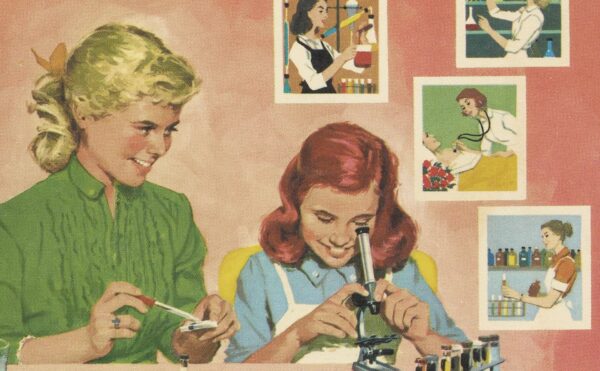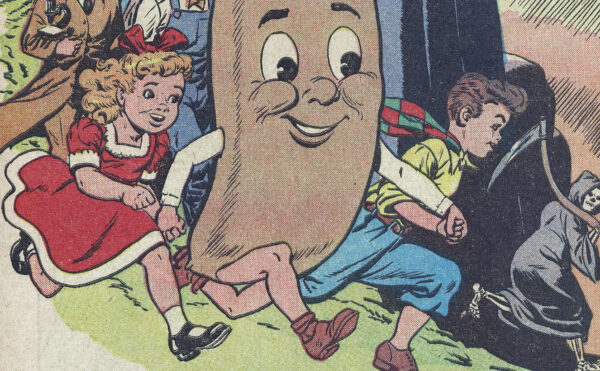Science in Humanities, Humanities in Science: Embedded Connections
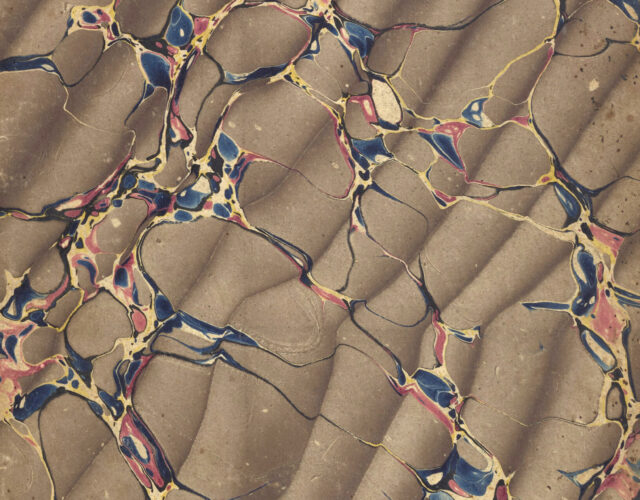
2023 Gordon Cain Conference
The relationship between STEM fields and humanities fields typically gets discussed in terms of observation, exchange, and travel. On the surface, specialists in the humanities appear to scrutinize and critique the questions, methods, or conclusions of the sciences and vice versa. Specialists from the sciences may borrow from, visit, or embed themselves in the humanities, or vice versa. Interdisciplinary and translational initiatives coax specialists of all sorts out of their disciplinary territories to examine and address complex problems together.
In practice, the ways of thinking associated with the sciences and with the humanities tend to come together within these fields. Working squarely within their own disciplines, humanists often contemplate materials, environments, technologies, and physical and biological processes—the stuff of STEM. Similarly, across academia, service professions, and industries, the work of STEM involves values, context, creativity, and complexity—hallmarks of humanistic thinking. Disciplines such as environmental history, industrial design, and archaeology take up questions one can only answer—or even ask—by thinking in both kinds of ways at once.
The 2023 Cain Conference brought together scholars and practitioners who have consciously developed and deployed such embedded connections, cultivating the humanistic dimension of STEM and heed for the STEM that’s within the humanities in pursuit of scholarship, advocacy, or business goals. It also convened historians and social scientists of science, technology, medicine, and the environment who have studied how such embedded thinking has worked within different disciplinary (or non-disciplinary!) institutions and intellectual cultures, past and present.
What can specialists in humanities fields learn from how specialists in STEM disciplines understand and go about humanistic thinking, and vice versa? What can those “moonlighting” in this fashion learn by putting their methods side by side with those of specialists? Are “STEM” and “humanities” accurate or useful shorthands for the kinds of thinking in question? Are there better ways of classifying disciplines? How do practitioners in intrinsically multi-modal fields rework humanistic and technical thinking by bringing them together? What makes individual and collaborative work of this sort succeed or fail, and what are the standards for judging?
We approached these questions from a place of curiosity about what can be learned through comparisons, conversations, and disagreements between embedded thinking and that of specialists, acknowledging the authority of experts but not assuming that embedded connections can or should always follow exactly the same standards.
Conference Program
Wednesday, October 4
| 12–1pm | Registration |
| 1–1:30pm | Introduction/Welcome |
| 1:30–3pm | Roundtable: Stability and Crisis Moderator: Dolly Jørgensen (University of Stavanger) Anne Fuchs (University College Dublin) Scott Knowles (Korea Advanced Institute of Science and Technology) |
| 3–3:30pm | Break and Participatory Activity |
| 3:30–5pm | Knowledge Claims in Uncertain Times Moderator: Dolly Jørgensen (University of Stavanger) The Pine Kingdom at Risk: Arboreal Agencies, Knowledge Claims, and the Involution of Crises on the Korean Peninsula Sumin Myung (Johns Hopkins University) Deep Time, Acceleration, and the Climate Crisis in Contemporary Latin American Literature Oscar A. Pérez (Skidmore College) A View from the Other Side: Crossing Borders, Rejecting Binaries Yangyang Cheng (Yale Law School) |
Thursday, October 5
| 8:30–9am | Breakfast (all participants and registered attendees) |
| 9–10:30am | Roundtable: Immediacy and Deferral Moderator: Victoria Lee (Ohio University) Hyungsub Choi (Seoul National University of Science and Technology) Helen Anne Curry (Georgia Institute of Technology) Cyrus Mody (Maastricht University) |
| 10:30–11am | Break |
| 11am–12:30pm | Science and Humanities between Perspective and Policy Moderator: Victoria Lee (Ohio University) Clandestine Pathways and Underground Disease Tricia Close-Koenig and Christian Bonah (Université de Strasbourg) America’s Flooded Front Yard Bryan Paradis (University of Pittsburgh) Robotic Humanity, Decision-Making, and Embedded Bias Yulia Frumer (Johns Hopkins University) The Globalized Local Andrew Meade McGee (Smithsonian Institution, National Air and Space Museum) |
| 12:30–1:30pm | Lunch (all participants and registered attendees) |
| 1:30–2:30pm | Roundtable: Care and Harm Moderator: Amy Slaton (Drexel University) Tiago Saraiva (Drexel University) Jessica Smith (Colorado School of Mines) Tara Nummedal (Brown University) |
| 2:30–3pm | Participatory Activity |
| 3:15–3:55pm | Care and Harm: Perspectives Moderator: Amy Slaton (Drexel University) Grounded Afrofuturism: The Lives and Careers of Black Space Scientists Arthur Wang (University of Pennsylvania) Disposable and Indispensable: Leeches’ Lives in Human Medicines Lisa Brooks (University of Alberta) The Thinness of Care: A Critical Genealogy of Dual Training in Medicine and Anthropology Joshua Franklin and Michelle Munyikwa (University of Pennsylvania) Disciplining Dress: Narcissistic Injury and the Emergence of Fashion Studies Christopher Rudeen (Harvard University) |
| 3:55–4:10pm | Break |
| 4:10–4:30pm | Participatory Activity |
| 4:30–5pm | Open Discussion |
| 6–8pm | Conference Dinner (presenters only) |
Friday, October 6
| 8:30–9am | Breakfast (all participants and registered attendees) |
| 9–10:00am | Roundtable: Recovery and Waste Moderator: Jeremy Greene (Johns Hopkins University) Anne Pollock (King’s College London) Josh Lepawsky (Memorial University of Newfoundland) Martin V. Melosi (University of Houston) |
| 10–10:30am | Break |
| 10:30–11:30am | Recovery and Waste: Perspectives Moderator: Jeremy Greene (Johns Hopkins University) From Thermal Pollution to Future Energy: Local Environment and Reimagining Cold Byproduct of Soyang Multipurpose Dam in South Korea Yeonsil Kang (National Science Museum of Korea) ‘The More Likely Vehicles of Infection’: Syringes, Heroin Use, and the Political Ecology of Endocarditis in 1970s New York Richard Keller (University of Wisconsin–Madison) The Toxic Ship: The Voyage of the Khian Sea and the Global Waste Trade Simone Müller (Augsburg University) |
| 11:30am–12pm | Open Discussion |
| 12:30–1pm | Closing Remarks and Next Steps |
Conference Organizers
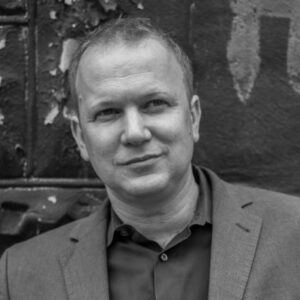
Jeremy A. Greene is the William H. Welch Professor of Medicine and the History of Medicine, director of the Department of the History of Medicine, and director of the Center for Medical Humanities and Social Medicine at Johns Hopkins University. He also practices internal medicine at the East Baltimore Medical Center. His research explores the ways in which medical technologies influence our understanding of what it means to be sick or healthy, normal or abnormal, on personal, regional, and global scales. Among his publications are The Doctor Who Wasn’t There: Technology, History, and the Limits of Telehealth (University of Chicago Press, 2022), Prescribing by Numbers: Drugs and the Definition of Disease (Johns Hopkins University Press, 2007), and Generic: The Unbranding of Modern Medicine (Johns Hopkins University Press, 2014). His newest research project, Syringe Tide: Disposable Technologies and the Making of Medical Waste, focuses on the scientific, social, and economic basis of the shift towards disposable technologies in hospitals and clinics that have made the healthcare industry one of the largest carbon-emitting and plastic waste-producing sectors of the global economy.
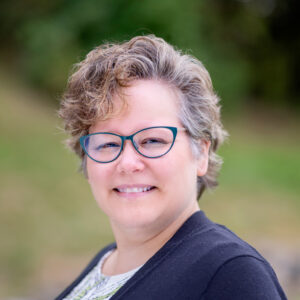
Dolly Jørgensen is a professor of history at the University of Stavanger, Norway (UiS). She is a coeditor in chief of the journal Environmental Humanities and codirects the Greenhouse Center for Environmental Humanities at UiS. Her current research agenda focuses on cultural histories of animal extinction and recovery, particularly the implications of extinction for cultural heritage and museum practices. Her book Recovering Lost Species in the Modern Age: Histories of Longing and Belonging was published by MIT Press in 2019. She has published widely in environmental history and environmental humanities, including four coedited volumes: New Natures: Joining Environmental History with Science and Technology Studies (2013); Northscapes: History, Technology & the Making of Northern Environments (2013); Visions of North in Premodern Europe (2018); and Silver Linings: Clouds in Art & Science (2020).
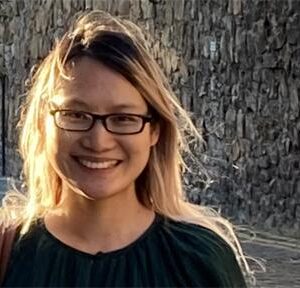
Victoria Lee is an associate professor in the History Department at Ohio University and director of the Technology and Society Certificate. She is a historian of modern science and technology, with a focus on the role of Japan in the 20th and 21st centuries. Her book, The Arts of the Microbial World: Fermentation Science in Twentieth-Century Japan (University of Chicago Press, 2021) looks at Japanese society’s engagement with microbes in science, industry, and environmental management. It explores how fermentation expanded beyond small-scale traditional manufactures to take special prominence in food, resources, and medicine, addressing the role of scientists and technicians in defining the texture of everyday life and material culture as an aspect of political economy, demonstrating that knowledge of microbes lay at the heart of some of Japan’s most prominent technological breakthroughs in the global economy. Her work has appeared in the Los Angeles Review of Books, NPR’s All Things Considered, and Mediapart.
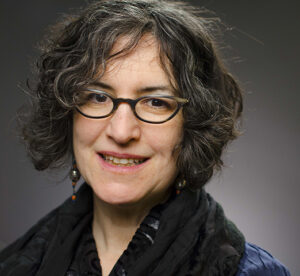
Amy Slaton is a professor in the Department of History at Drexel University. She holds a PhD in history and sociology of science from the University of Pennsylvania and has taught courses in the history of American science, technology, and architecture, as well as in U.S. labor history and race relations. Among her publications are Reinforced Concrete and the Modernization of American Building, 1900–1930 (Johns Hopkins University Press, 2001) and Race, Rigor, and Selectivity in U.S. Engineering: The History of an Occupational Color Line (Harvard University Press, 2010). Her current book project is All Good People: Diversity, Difference, and Opportunity in High-Tech America, under contract with MIT Press. She is coeditor, with Tiago Saraiva, of the international journal History+Technology.
About the Gordon Cain Conference
The Gordon Cain Conference is a gathering of scholars in the history of science and related fields. Each conference is organized by an eminent scholar who works with staff to develop a theme of broad contemporary relevance. Centered on a topic chosen by the conference organizer, the conference consists of an evening public lecture, a symposium, and a collected volume. It is hosted by the Arnold and Mabel Beckman Center for the History of Chemistry and supported by a generous gift from Gordon Cain.
More events
Stories of Science: 2025 Wrapped
Join us in our museum EVERY SATURDAY for a family-friendly program that highlights strange and surprising stories from the history of science!
School Lunch Tour
This interactive drop-in tour reveals how food scientists, the government, and the public have shaped in-school nutrition.
Stories of Science: Last Bite of School Lunch
Join us in our museum EVERY SATURDAY for a family-friendly program that highlights strange and surprising stories from the history of science!

